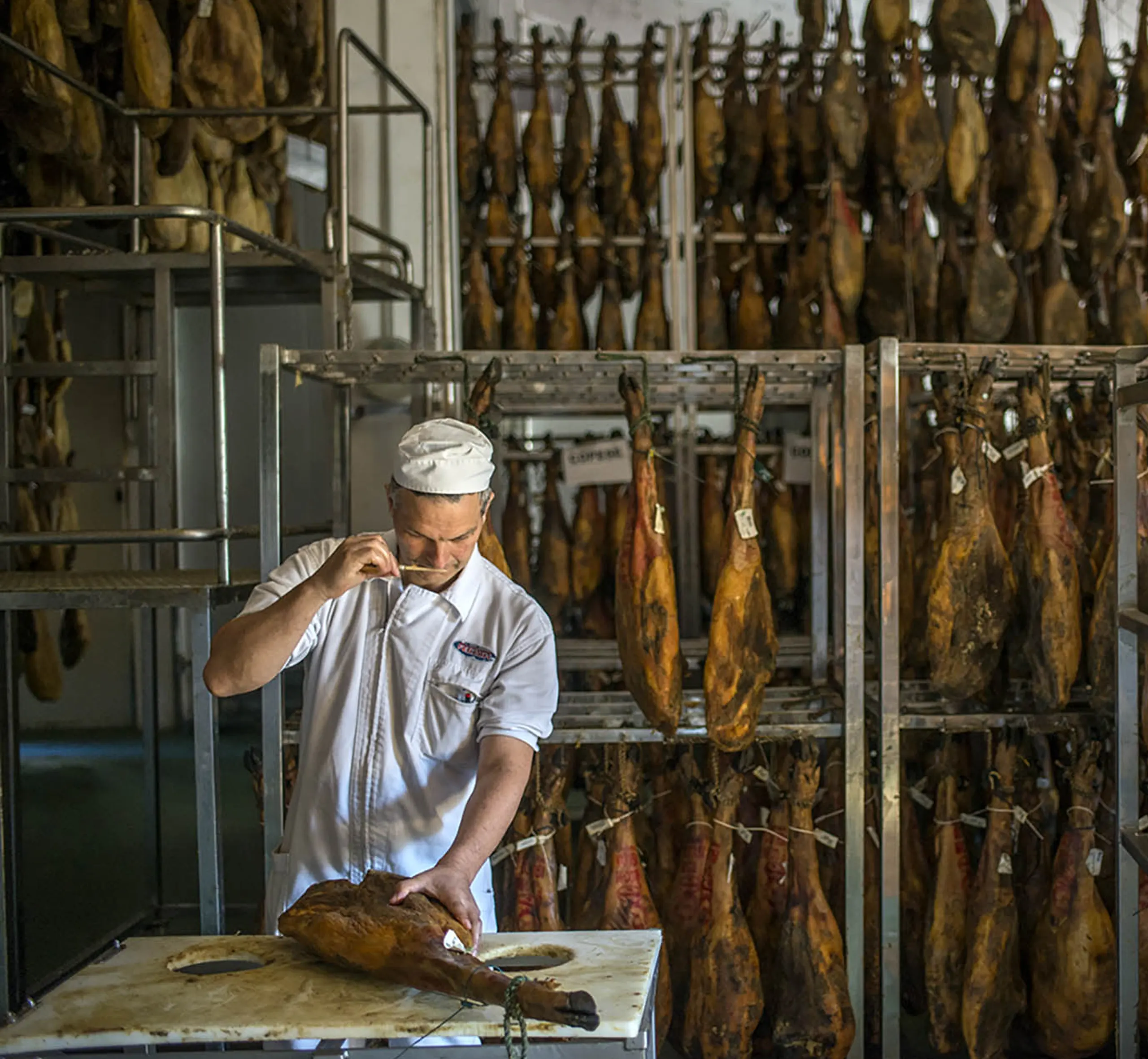FAQ’S
FERMÍN FAQ'S
FERMÍN FAQ'S
FAQ'S
FERMÍN FAQ'S
FERMÍN FAQ'S

Our products are carefully cured in natural dryers with windows receiving the air from our Sierra de Francia mountains. that helps to regulate the temperature based on the current weather. You can read more about it here.
You can read more about this unique and protected area in our web.
Yes, they are and you can read more about it here.
Yes they are and your can read more about it here.
The sugar that the ham can sometimes contain is part of the preparation of nitrifying salts. This type of salt contributes to the preservation of the product, in addition to help achieve the reddish tone in cured products.
This nitrifying salts, contains, among other things, a small amount of sugar that will be present in an almost insignificant way in the final product. Fermín has two product lines: hams and shoulders with nitrites and without nitrites.
Yes, you can contact our importers and distributors in the US. If you want to become an importer, you can contact us at info@embutidosfermin.com
Keep them accesible to your customers so they can read the label and the ingredients easily. You can contact your sales rep, distributor or reach out us directly with suggestions or information about your options.
It is up to you but all our products (except Morcilla and Sobrasada) are shelf stable. You can read more about how to store best about products here.
Check this article about storing and temperatures.
Each product is different, please read our recommendations on the label. But in general we do recommend removing it.
We produce four Iberico categories. You can read more about all these categories here.
They are totally different, starting from the breed of the animal, what they eat, where they live. You can read about both both of these categories here.
A lot! You can learn about the difference here.
The ham is a larger piece and is the front leg. The shoulder is smaller and is the back leg.
Not all the Iberico pigs are black. There are different types of Iberico pig. Black, red, spotted and blond pigs are distinguished, and within these groups we then classified the specific breed like “lampiño or retinto”.
The feeding of our 100% Iberico acorn-fed pigs is based on their first weeks of breast milk and over time they start to feed on feed (grass and cereals). In the last period of their life, the fattening starts. Here they start eating the acorns (during the Montanera season, from October to February). In addition, they also eat roots, herbs and anything nature provides. You can read more about the montanera here.
They go into the montanera with a weight of 92-115 kg. They have to gain about 46 kg in about 60 days.
A minimum of 14 months old is required.
Yes, this delicious fat has a lot to offer. You can read more about here.
The exterior fat has to be removed. This fat is usually orange or cream in color due to the oxidation and aging process. Once you start slicing the ham, you can enjoy the white fat on every slice. This is part of the experience. You can read more about it here.
Acorns are edible wild fruits. When it comes to nutrition, they are similar to chestnuts and almonds, but healthier. They are packed with proteins, carbs, fat and fiber.
If the the mold is superficial it does not affect he product. You can read more about it here.
Those are tyrosine crystals naturally formed during the slow and artesanal aging process. You can read about it here.
The color of the product can vary from one piece to another depending if the product was more or less cured. The color may also change depending on the light that is receiving on the shelf, refrigerator or kitchen counter.
To comply with the US regulations, we have to remove that part of the pig before importing it.


